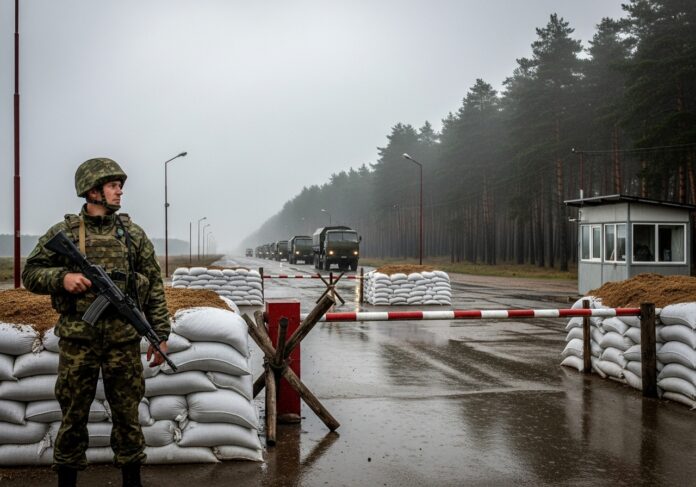
Russia is once again stirring trouble in Eastern Europe, and the world should take notice. In recent days, Moscow has accused NATO of planning to occupy Moldova and threaten the breakaway region of Transnistria, where Russian troops are already stationed. These are serious claims, but there’s no evidence to support them. Instead, it looks like Russia is using the same playbook it used before invading Crimea in 2014. This time, Moldova may be the next target.
Let’s take a step back. Moldova is a small country that used to be part of the Soviet Union. It now sits between Ukraine and Romania. For years, it has been stuck between two paths: one that leads toward Europe and freedom, and one that leads back to Russian control. Most Moldovans want to join the European Union and live under law and liberty. But Russia wants to keep a grip on the country, especially through the region of Transnistria, which is controlled by pro-Russian separatists and guarded by Russian troops.
Now, with elections coming up in Moldova, Russia is turning up the heat. Moscow’s foreign intelligence service, the SVR, claims that NATO troops from France and Britain have arrived in Ukraine’s Odesa region, just across the border from Transnistria. They say this is part of a Western plot to intimidate the region and take over Moldova. But these are wild accusations with no proof. They sound more like excuses for Russian interference than real threats from NATO.
This is not the first time Russia has told such stories. Before it invaded Georgia in 2008 and before it took Crimea in 2014, Moscow accused others of aggression. It made up threats to justify its own military actions. Today, it looks like Russia is doing the same thing in Moldova. The goal is to create confusion and fear, so it can justify stepping in with force if the election doesn’t go its way.
Russia’s ally Sergey Mironov has even warned that Moscow may “act decisively” if it feels threatened. He compared the situation to the 2008 war in Georgia, when Russian troops crushed opposition in just five days. That is not a peaceful warning—it’s a threat.
This kind of behavior is dangerous, not just for Moldova, but for Europe and the world. It’s also a reminder that freedom must always be defended. The people of Moldova have the right to choose their own future, without interference from Moscow or anyone else.
President Trump and his administration have rightly taken a strong stance against foreign meddling and have worked to restore American strength on the world stage. That strength is vital now, as Russia tries to bully its neighbors once again. We must stand with nations like Moldova who seek liberty and self-government, not domination by foreign powers.
It’s also important to recognize how Russia uses lies and disinformation to stir chaos. Reports say the Kremlin is trying to bribe voters, spread fake news, and even send provocateurs to cause trouble during Moldova’s election. This is not democracy—it’s sabotage. And it must be called out.
The United States was founded on the idea that government gets its power from the consent of the governed. That principle doesn’t stop at our borders. It’s a universal truth. When we see other nations trying to live in freedom, we should support them—not with weapons, but with truth, with diplomacy, and with the moral strength that comes from our Constitution and our history.
The world is watching Moldova right now. Will the people there choose Europe and liberty, or will they be pushed back under the shadow of Moscow’s rule? Whatever happens, we must not be silent. Liberty is always worth defending—whether in America, in Europe, or in a small nation like Moldova that wants to walk the road of freedom.



